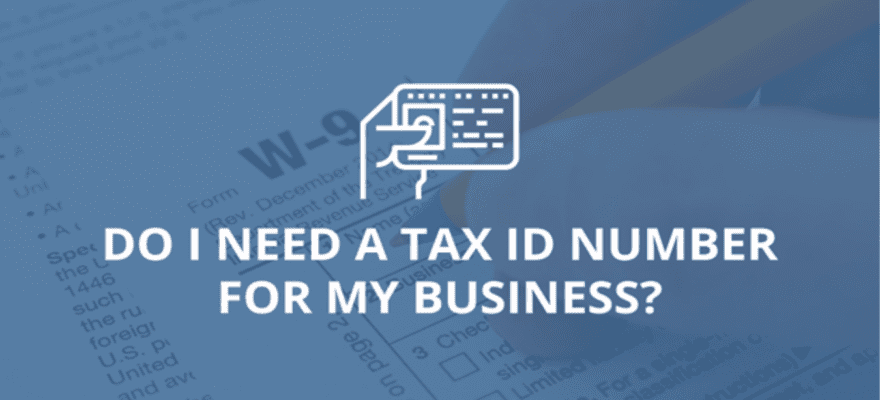Thanks to the gig economy, a growing number of people are inspired to take control of their financial future by starting their own business. One of the first things they ask themselves is, “Do I need a tax ID number for my business?”
In most cases, the answer to that question is yes. But there are exceptions.
Tax ID Numbers Explained
The Internal Revenue Service (IRS) uses taxpayer identification numbers to track payments to individuals and businesses for tax purposes. There are three primary types:
- Social Security Number (SSN): assigned to U.S. citizens and some permanent residents to track their income and determine eligibility for benefits.
- Individual Taxpayer ID Number (ITIN): issued to individuals who need to have a U.S. taxpayer identification number but who do not have, and are not eligible for a Social Security number.
- Employer ID Number (EIN): used to identify business entities. Although it refers to ‘employer identification’, businesses without employees may also need an EIN.
In general, you will need a tax ID number (EIN) if your product or service involves any form of taxation. (For example, if you charge tax or your state levies a tax against your offering.) An EIN is also required if:
- Your business has employees
- You withhold taxes on income (except wages) that you pay to a nonresident alien
- You run a corporation or partnership
- You file employment, excise or Alcohol, Tobacco and Firearms tax return
- You have a Keogh plan
- Your work involves IRAs, trusts, estates, plan administrators, farmers’ cooperatives, nonprofit organizations, real estate mortgage investment conduits, and business income tax returns for exempt organizations
EINs are also used to:
- Open a business bank account
- Apply for a business loan
- Obtain business licenses and permits
- Report and remit federal payroll taxes
Some wholesale distributors will require you to have a federal or state tax ID in order to take advantage of more affordable wholesale costs.
What About Sole Proprietors?
If you run a sole proprietorship or single-member LLC with no employees, you can use your Social Security number as the tax ID for your business, as the company files and pays income taxes through your personal tax returns. The only exception to this general rule would be if you file pension or excise tax returns.
Tax ID Numbers For New Jersey Businesses
If you do business in New Jersey, you will need to get a state tax identification number, which is issued when you register with the Division of Revenue and Enterprise Services. All limited partnerships, corporations, and LLCs formed in the state need to register using their EIN. If you have a sole proprietorship or partnership with employees, you are also required to register using an EIN. The only exceptions to this requirement are:
- Sole proprietorships and partnerships without employees
- Out of state business entities who employ New Jersey residents or need a Business Registration Certificate to apply for a state contract.
In New Jersey, all vendors, even one-time operations and seasonal businesses, have to register for a state tax ID number at least 15 days before commencing operations. Once registered, you have to file all necessary returns until your tax registration officially ends.
Although you may not need a federal tax ID for your business, applying for one is free and it simplifies the process of opening a company bank account and applying for financing. In this respect, a tax ID is like insurance: you may never need it, but if you do, you’ll be glad that you took the initiative.
Speak with a New Jersey Tax ID Attorney
The IRS uses your SSN/EIN to track your business earnings and verify that you are paying all obligatory taxes. Consequently, you may be targeted for an audit and assessed an amount that you don’t agree with or can’t afford.
If that happens, reach out to the experienced tax team at Paladini Law by calling 201-381-4472 or filling out our online form. Attorney Brad Paladini will help you appeal the assessment or negotiate an IRS payment plan or New Jersey installment agreement that allows you to manage your tax liability while you continue to grow your business.



